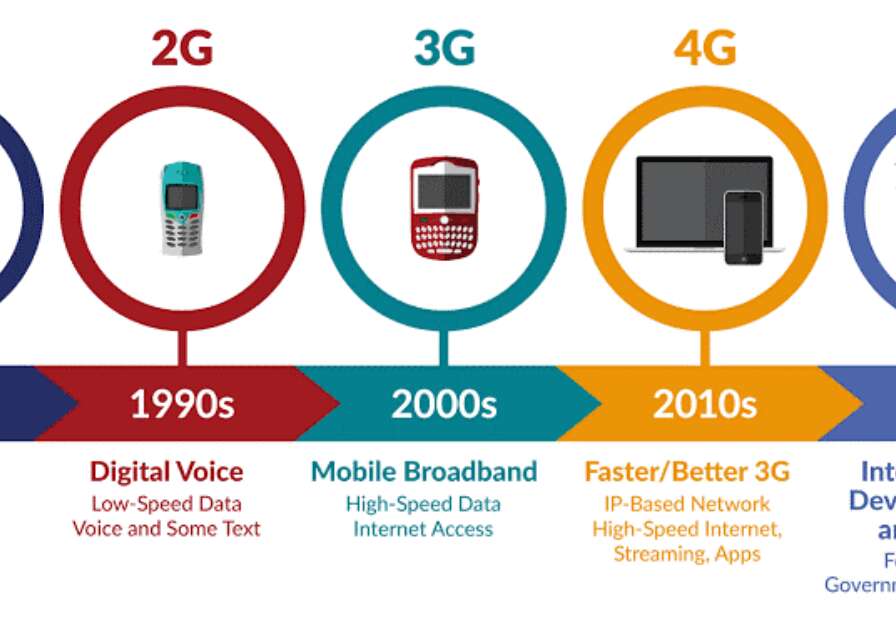Blitz News Digest
Stay updated with the latest trends and insights.
5G Technology: The Fast Lane to Our Connected Future
Discover how 5G technology is revolutionizing connectivity and paving the way for a smarter, faster future. Join the 5G revolution today!
Understanding 5G Technology: How It Works and Its Impact on Our Lives
5G technology represents the fifth generation of mobile networks and is designed to significantly enhance the speed, capacity, and connectivity of wireless communications. Unlike its predecessor, 4G, which could support a limited number of devices, 5G is engineered to accommodate a vast array of connected devices simultaneously. This technology utilizes advanced radio frequencies and an infrastructure of small cell towers to achieve lower latency and higher data rates. Through techniques like beamforming and massive MIMO (multiple input, multiple output), 5G ensures that users experience faster download speeds, improved video quality, and seamless connectivity even in crowded areas.
The impact of 5G technology on our lives is poised to be profound and far-reaching. With the ability to connect billions of devices, it will pave the way for advancements in various sectors, including healthcare, transportation, and smart cities. For instance, in healthcare, real-time data transfer can enable remote surgeries and telemedicine with enhanced reliability. In transportation, vehicles equipped with 5G technology can communicate with each other and traffic systems to improve safety and efficiency. Furthermore, as IoT devices proliferate, 5G will serve as the backbone of a more connected lifestyle, making daily tasks more automated and integrated than ever before.

The Benefits of 5G: Transforming Industries and Daily Life
5G technology is revolutionizing the way industries operate, presenting a myriad of benefits that enhance productivity and efficiency. With its lightning-fast data transfer speeds, low latency, and increased connectivity, 5G enables businesses to implement advanced technologies such as the Internet of Things (IoT), artificial intelligence, and augmented reality. For instance, industries like healthcare can leverage 5G for real-time remote monitoring of patients, leading to quicker responses and improved outcomes. Similarly, the automotive sector can harness this technology to develop smart vehicles that communicate with each other and their surroundings, ultimately increasing safety and convenience.
Beyond industrial applications, 5G is transforming daily life in remarkable ways. The enhanced network allows for seamless streaming, high-definition video calls, and immersive gaming experiences, providing users with a richer digital experience. Moreover, the technology supports smart city initiatives, improving urban infrastructure through enhanced traffic management, energy efficiency, and public safety systems. As 5G continues to evolve, it promises to foster greater innovation and economic growth, making it a critical driver of our connected future.
Is 5G Safe? Debunking Myths and Addressing Concerns
The introduction of 5G technology has sparked a wave of discussions and debates surrounding its safety. Many people express concerns about the potential health effects of increased electromagnetic radiation from 5G cell towers and devices. However, extensive research conducted by various international health organizations, including the World Health Organization (WHO), indicates that 5G is safe to use. These studies involve rigorous evaluations of radiofrequency electromagnetic fields and detail that there is no compelling evidence connecting 5G exposure to harmful health effects.
Moreover, it's crucial to address myths that have circulated around 5G technology. One common misconception is that 5G will lead to widespread health crises similar to those attributed to older wireless technologies. In reality, 5G operates at a frequency range that falls well within regulatory limits established to protect public health. 5G networks also utilize advanced technology, including beamforming, which directs signals more efficiently and minimizes unnecessary exposure. Therefore, as we continue to integrate 5G into our daily lives, it is essential to rely on scientific findings rather than unfounded fears.